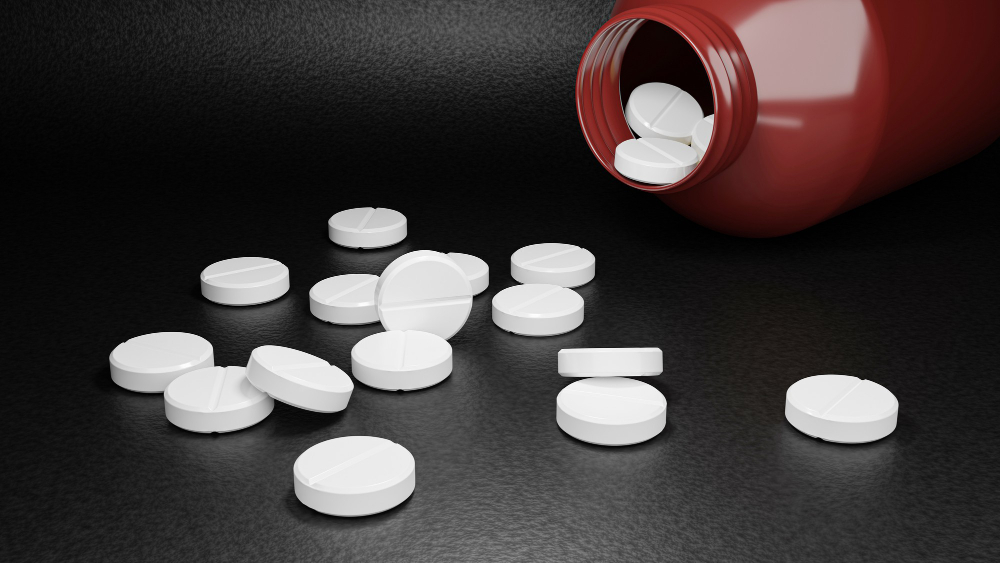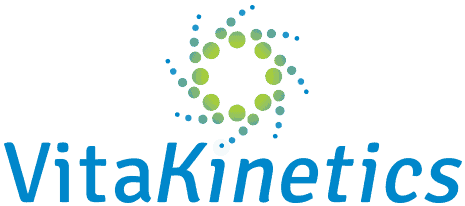Radically Resilient Health Podcast
Why Seek Alternatives to Pain Meds
The Opioid Crisis is no joke and Dr. Carolyn Dolan of VitaKinetics has dedicated her career to helping useful alternatives for pain management. In this episode of VitaKinetics, we talk about the reasons that opioid management and alternatives are so important – especially for the younger population. It takes more than personal responsibility – it starts with friends, family, and neighbors.
Transcript:
Connie Wray: (00:00)
Welcome back to radically resilient health with Dr. Carolyn Dolan. I am your host, Connie Ray. And today we’re going to be talking about the opioid crisis and Dr. Dolan is here to share a personal story and also give us some insight into her creation of Vida kinetics, Dr. Dolan, and some of our earlier podcasts. You really talked about opioids and the crisis that we were in the middle of as being one of the main points of you deciding to create Vita kinetics. You recognized that there were many of us that were reaching for our alternatives to fight our pain and Vita kinetics could be a great resource for that.
Dr. Carolyn Dolan: (00:41)
Absolutely. Um, as I’ve mentioned before, in our past podcasts, I started out doing my thesis work, you know, trying to come up with different ways or other effective ways of managing pain during that recovery process and how our current practices, or, uh, both over the counter and prescription how they, how they helped, but also how they really didn’t support that healing process. And what’s really interesting about this story about that process is it reminded me, it brought me back to a really important thing that happened in my life when I was, I had two young kids and my husband had to have surgery and I didn’t really realize how much this impacted me because at the moment, so I had two young kids, we were in the Bay area and trying to find childcare. So I could continue to work in the clinic. At the time was really difficult.
Dr. Carolyn Dolan: (01:33)
We tried an in-home daycare and then this other daycare like didn’t have space for both of the kids. So I had to hire a nanny and I was only working part-time. Um, and then my husband had to have a surgical procedure. And even back then we knew opioids were problematic. We needed to keep them safe from the kids, but the kids were so young. It was really pretty easy to keep them away from them out of reach and stuff. But what ended up happening is the nanny for us at the time, ended up taking some of the opioids. And so when my husband had to go back to surgery, we realized, gosh, there’s pills missing. Cause he’s, he didn’t remember taking any of them. I didn’t. I was like, I dunno, I’m sure you took at least one, but no one could remember. And then we started keeping track and it turned out the nanny was taking, stealing the opioids from our house, not the kids, but while she was taking care of our kids.
Dr. Carolyn Dolan: (02:25)
So clearly she was fired on the spot. I’d quit my job because I couldn’t find childcare. And it really was a big, a big deal. Um, but what was interesting when I was doing the research for my thesis work, what we know as far as the opioids, how they work is that they, they use, they block the pain perception in the brain and that opioid receptor blocks the perception of pain. And again, doesn’t facilitate healing or any of that kind of thing and can become very addictive. So we’ve all heard of this and that it’s still a continued problem. But what was interesting is that I went back and as I was looking at the patterns of like, where are people getting these? Where are people getting these drugs? Because clearly the opioids can be a gateway to things like heroin and other more, even more dangerous drug use.
Dr. Carolyn Dolan: (03:19)
And that there’s this period of time of age where people are more likely to become addicted. So for the age group of 14 to 15, it’s a really high risk of addiction and then 16 to 17. And that 16 to 20, after about 21 years old, the risk of, uh, illicit drug use and addiction drops off. And certainly in that 26 or older, it’s really pretty low. So as I think about having as a parent, having children, why is that important? Well, you know, it’s not so much that the doctors or anyone’s prescribing to those age groups because they all know it’s a problem. But what’s interesting is that the people who are at low risk for developing addiction, so that older age group are the ones that are getting prescribed the opiates. But you have to ask yourself, who do they have exposure to?
Dr. Carolyn Dolan: (04:14)
Like who’s in their family that might be at risk. And so as we age and our kids are aging, they’re getting to those teenage years, that’s that danger zone where they can gain access and start to go down this addiction path. And the other interesting thing I found out about with the opioids is that if you’re a naive person, who’s never had opioids before. And I use patient that the risk for addiction goes up dramatically after three days of use. So there’s this like time period where, you know, it’s probably okay to use it, even in those, um, high risk age groups, um, for a short period of time. And we’re not talking about avoiding them to the point where you’re causing suffering, if someone’s had a traumatic event or a surgical procedure, but you know that there is this time period. And beyond that three to five days, your risk of addiction starts to skyrocket.
Dr. Carolyn Dolan: (05:09)
And so then I was asking the question, well, Oh, I wonder how does this all play out? Because my experience was such that my husband, wasn’t an I, weren’t the ones that were really in that high risk category for addiction. And neither were our young children. Clearly our nanny was not a teenager, but she had already addictive tendencies, I suppose, that we weren’t aware about, but I came across this, um, report. It was a national survey in 2012, which I guess is considered old at this point. But I doubt much of it has changed per this report up to 70% of those 12, 12 years old or older who gained access to opioids or opioids and became addicted, got their initial start from a friend or relative or a parent. It was not, it wasn’t the dark web. It wasn’t a drug dealer off the street.
Dr. Carolyn Dolan: (06:11)
It wasn’t a doctor that that’s a very small percentage of all of those people who are addicted. It was a friend, a family member, a grandparent you can imagine in a cabinet or such. And so that sort of thing really struck me personally, as I was doing more of this research about how important it is to pay attention and having some alternatives. I mean, one is the opioids themselves do not facilitate healing in the way the body needs the healing. They they’re addressing the perception of pain and it clearly a problem. So we need to be responsible. So even though say you were, I aren’t at the highest risk of becoming addicted, even if we were given appropriately more than a seven day prescription for a dangerous medication, the reality is a lot of people will keep them on hand, just in case they have a pain later on, so they don’t have to get another prescription.
Dr. Carolyn Dolan: (07:15)
And so it was that to me was really profound to realize that we have to not only store them properly, prescribed them properly, but we maybe need to start educating people on proper disposal so that when you’re done with your, whatever you need them for, if you are prescribed them, that it’s talked to your pharmacy now, cause you, when you get a prescription. So my husband had to have another surgery recently and he was given a prescription and we clearly kept it safe out of the kids’ hands. Now that our kids are older and hidden from other people who might come over and just grab a pill apparently and keeping really good track and locked up and such. But then when we were really kind of out of that zone of that post-op recovery period we disposed of on properly and there’s this, um, it’s a packet that you can get from a pharmacist that you can shake up in the bottle and then throw it away.
Dr. Carolyn Dolan: (08:16)
So it’s no longer pills you can reach out to the pharmacy national associate. I think it’s the national association of boards of pharmacy and find a disposal locator near you. I think it’s really important that we become aware of where the dangers are. And again, like I mentioned, it’s really profound to think that it’s not the doc. There are doctors who clearly overprescribed and are dangerous. We’ve heard about all of that in the news, but as a general rule, it maybe seems to be more likely that people are gain gaining access to these drugs, through family, friends, relatives. It’s not, we wouldn’t necessarily think that
Connie Wray: (09:03)
When you decided to create the content of Vita kinetics and we’ve had several people that have talked about one of the reasons they loved Vita kinetics. Uh, you know, we spoke with the mom page recently whose son had to have surgery and she was really turning to Vita kinetics because it was an alternative, very concerned about exactly what you’re talking about. Did not want her son to become addicted. He’s right at that prime age, when he was having the surgery, this is what for me, as someone who was taking Vita kinetics after a hip replacement, for me, it was the ingredients that you had invited kinetics. To me, it was actually a healthier ingredient. Like you just mentioned that pain med is really covering up the pain. It’s not necessarily there to help us heal. It’s more to shut that pain receptor off in our brain, but very much like what you just said into my third day with the hip replacement, I was already moving forward into Vita kinetics and really slowly weaning myself off of those pain meds. And just like Paige mentioned with her son, that was why she turned to you. The ingredients invited kinetics not only was helping with the inflammation, but it was also providing a supplement that was healthy, giving vitamins and minerals that your body needs,
Dr. Carolyn Dolan: (10:23)
Needs to heal. And that’s exactly where it was born from. I, the more I researched about the opioid crisis and our options and some of the troubles with those other over-the-counter pharmaceuticals was well, is there something where the supplements can play a role, a supportive role here? Clearly they aren’t a cure hall, you know, but it really was just like you said, a stepping stone for someone to say, okay, now we’re going to support the body. We’re going to support this inflammatory process, this healing process. And that’s what we’ll be starting to do in the next series of our podcasts is we’ll review. You know, what part of the research did I discover doing that on each individual component and why it was included? And it really circles back to the support of that gut brain connection and the integrity of the intestinal properties and their effects on the healing process.
Dr. Carolyn Dolan: (11:20)
And so we’ll, we’ll kind of do that step-by-step for each ingredient and share where that is. But, you know, I really wanted to find something. I, we have such amazing stories from some of our folks like yourself and Paige shared her story and we have so many more on the website, but even me personally, having now gone through surgery again with my husband and then my son had his traumatic injury. I have been so grateful to have something I feel like I can reach out to, to use that I feel, you know, is supportive and is helpful. And I’m not worried about dangers of having some sort of major adverse reaction or addiction problems. And doesn’t mean that we are in zero pain. Well, no, but manageable that we get to that point where we start to understand what is this pain in these acute stages telling us that we need to do you almost need to have enough pain to stimulate a response. I mean, really going around having no pain in those acute stages of healing, um, gets people and just like, they’re going back to work way too soon. And then all of a sudden their knees all sworn because they weren’t paying attention to that healing process. You know, if you’re really blocking that perception or blocking the healing process, you don’t get that normal healing.
Connie Wray: (12:46)
I would also say that for myself, it was a price point issue. I mean, yes, I want it to be off opioids, but I also looked at the expense of being on a medication like that. Oftentimes you’re paying out of pocket or, you know, what, what amount will insurance cover? And for me, it just seemed more logical to turn to something like Vita kinetics that was naturally helping my body heal on top of helping with that inflammation, which was causing the pain. I had just gone through a hip replacement. And I would even say, Paige mentioned that with her son, like he was pretty quickly as, as he should. He was a young man who had gone through a surgery. He is going to heal faster. He was a healthy, active individual. So of course he’s not going to need to set on an opioid for a longer period of time. He has, his body is healthy and doing that natural healing process and Vita kinetics just kind of added to that natural process.
Dr. Carolyn Dolan: (13:48)
Absolutely. And the other interesting thing, you, you, you mentioned on the expense, I mean, absolutely some of those, um, pain medications are really expensive and also there I am expensive. Uh, I remember when my son was recovering from his appendicitis and we had been, he got a couple of doses, cause that was really painful to go through. And then as we were discharging, he hadn’t used it since like once post-op and then we were managing it with Tylenol or Motrin or whatever it was. And, and as they were checking me out, I was going to have to like in the state of Nevada, you mean you have to get filed into a place where you’re saying that you’re taking this young kid and you’re taking away this prescription for opioids. And I had to really work hard to communicate with the staff, like, but I don’t want that.
Dr. Carolyn Dolan: (14:40)
If you suddenly into severe pain again like that, then I need to come back to the hospital and find out what’s happening. We haven’t been using it. I shouldn’t need it right now. And he shouldn’t need it right now at this stage because he hasn’t been using it. And if we really get to that and it was an active conversation, and I think it’s important for us also as consumers of healthcare, that we are communicating with our providers, you know, where we want to be and asking those questions. Okay. If you really think I need to have this prescription, I really don’t want more than, you know, a certain number of days because you don’t need, you know, how many do I really need to get through this? And then what are the other things I, you know, like I want, I told all of our healthcare providers, we’re going to be planning on using this blend of vitamins so that you’re in the know I’m all about that communication. And it does, it takes a moment of time, but the time you spend now saves you all that time and loss of function, because you’re now dealing with an addiction problem, you know, or like you said, the cost. And that’s the other reason why we really tried to put this together so that it would be both cost-effective efficient, convenient, and safe.
Connie Wray: (16:01)
I would say that Vita kinetics is just one component to helping your body naturally heal. And as you mentioned, Carolyn, we’re going to continue on over the next few podcasts and talk about some of the additional things, including the ingredients that you have inside Vita kinetics and coming up on our next podcast. We’re going to be talking about the importance of vitamin D and how oftentimes we forget this is a vital and important vitamin to consume. Of course, it’s one of the ingredients inside Cytokinetics, but it’s also a way that you can get it naturally. And that’s simply by going outside. And we’ll talk about that coming up on our next podcast.

Mena
Radically Resilient Health Podcast Small Steps Conquer Mountains with Special Guest Mena Spodobalski Evoke Fitness owner, Mena Spodobalski, shares her joys and struggles toward radically resilient health. Health doesn't always have to seem radical. The best workout...
Recovery From Substance Dependency With Lori Windfelt
Radically Resilient Health Podcast Recovery From Substance Dependency With Lori Windfelt Radically Resilient Health is not about the absence of disease, injury, or stress, it is the ability to recover and make positive choices to support your overall health. Lori...
Emotional and Mental Resiliency – With Special Guest Dusty Braun
Radically Resilient Health Podcast Emotional and Mental Resiliency With Dr. Dusty Braun Our mind and body are intimately interconnected in ways that we can't really comprehend outside of science. We oftentimes think ourselves or our minds as separate from our body,...
Available at our partner locations

690 West 2nd St. Suite 101
Reno, NV 89503

13981 S Virginia St #402b,
Reno, NV 89511








